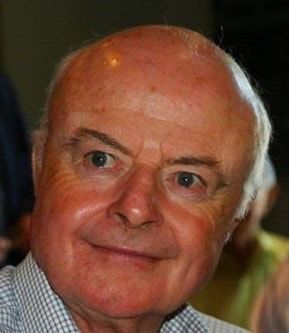Ancestor Stories: Peter Lalor
by Peter Lalor Philp
 Peter Lalor Philp
Peter Lalor Philp
Peter Lalor was born in County Laois, Ireland in 1827 and died in Richmond, Victoria in 1889. Peter Lalor brought to Australia that radical sense of justice that had been ingrained into him and his siblings throughout his early life. His father and brothers were active members in the struggle for a democratic Ireland but also fierce fighters for the nation’s poor and the oppressed members of the Catholic population. Before Peter Lalor landed in the Port Philip Colony, he was talking about confronting issues of social injustice in this country. Moving to the Victorian goldfields he was soon aware of the injustice concerning the gold diggers licences and the ruthless manner in which licence raids were carried out by violent and corrupt officials. Peter Lalor joined the Ballarat Reform League and was elected leader of the diggers who were demanding political reform of the political system.
As the situation worsened, 12,000 people massed at Bakery Hill Ballarat on 29th of November 1854 and Peter Lalor called on those committed to the cause to swear allegiance to the flag of the Southern Cross. Standing beneath this flag, described as, ‘better than any standard in old Europe’, Peter Lalor led the diggers in the swearing of the oath which would become the battle cry of Eureka. ‘We swear by the Southern Cross to stand truly by each other and fight to defend our rights and liberties.’ On the morning of 3 December 1854, about 276 soldiers and police, attacked the diggers who were sheltering behind a flimsy stockade at Eureka. During the attack, Peter Lalor was injured and later smuggled out of Ballarat to Geelong where he recovered. Within 12 months of the Eureka Stockade, Lalor was a Member of Parliament. In his election declaration Lalor said: ‘I am in favour of such a system of law form as will enable the poor man to obtain equal justice with the rich one, which at present I believe to be impossible.’ During his parliamentary career, he held a number of Ministerial portfolios including Speaker of the Legislative Assembly from 1880-1887. He retired from parliament a year later because of ill health.
In parliament as at Eureka, Peter Lalor was always his own man, never a servant of the popular ‘isms’ of the time. Ask in Parliament if he was still a democrat. His reply: ‘If a democrat means opposition to tyrannical press, tyrannical people or a tyrannical government, then I have ever been, I am still and will remain a democrat.’ When faced by an angry mob he said: ‘You can murder me but you will never frighten me.’
Peter Lalor Philp is the great great-grandson of Eureka’s Peter Lalor. He is a writer and broadcaster. Much of his career has been concentrated on the poverty and injustice in the Third World, particularly Latin America. ‘We were brought up with the Lalor motto of being proud of the family’s struggle for a more just society however never to be content to live under its shadow but actively carry forward that tradition.’
As the situation worsened, 12,000 people massed at Bakery Hill Ballarat on 29th of November 1854 and Peter Lalor called on those committed to the cause to swear allegiance to the flag of the Southern Cross. Standing beneath this flag, described as, ‘better than any standard in old Europe’, Peter Lalor led the diggers in the swearing of the oath which would become the battle cry of Eureka. ‘We swear by the Southern Cross to stand truly by each other and fight to defend our rights and liberties.’ On the morning of 3 December 1854, about 276 soldiers and police, attacked the diggers who were sheltering behind a flimsy stockade at Eureka. During the attack, Peter Lalor was injured and later smuggled out of Ballarat to Geelong where he recovered. Within 12 months of the Eureka Stockade, Lalor was a Member of Parliament. In his election declaration Lalor said: ‘I am in favour of such a system of law form as will enable the poor man to obtain equal justice with the rich one, which at present I believe to be impossible.’ During his parliamentary career, he held a number of Ministerial portfolios including Speaker of the Legislative Assembly from 1880-1887. He retired from parliament a year later because of ill health.
In parliament as at Eureka, Peter Lalor was always his own man, never a servant of the popular ‘isms’ of the time. Ask in Parliament if he was still a democrat. His reply: ‘If a democrat means opposition to tyrannical press, tyrannical people or a tyrannical government, then I have ever been, I am still and will remain a democrat.’ When faced by an angry mob he said: ‘You can murder me but you will never frighten me.’
Peter Lalor Philp is the great great-grandson of Eureka’s Peter Lalor. He is a writer and broadcaster. Much of his career has been concentrated on the poverty and injustice in the Third World, particularly Latin America. ‘We were brought up with the Lalor motto of being proud of the family’s struggle for a more just society however never to be content to live under its shadow but actively carry forward that tradition.’

